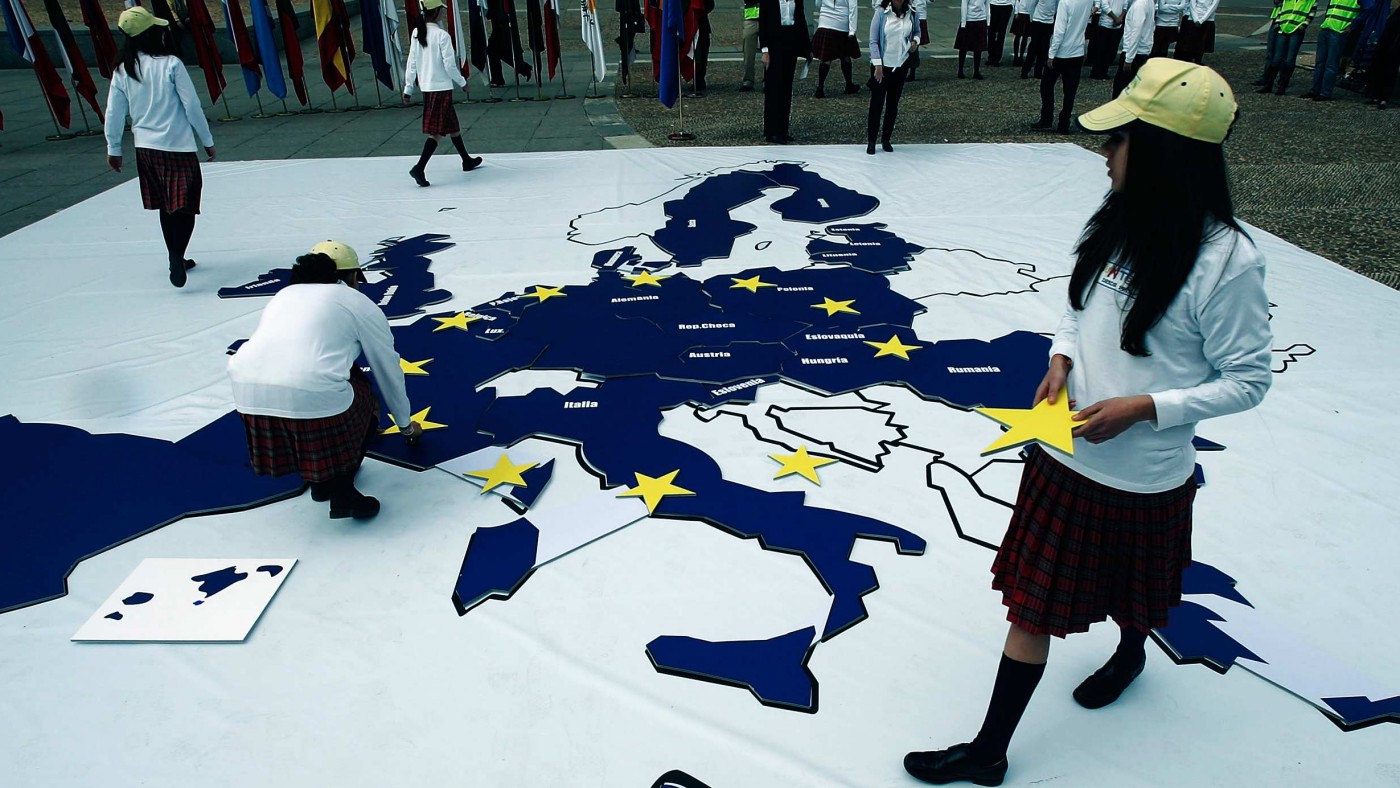I’m a bit bemused by Daniel Hannan’s critique of The Great European Disaster Movie, a documentary that aired on BBC4 on Sunday night and which is viewable on iPlayer for the next month. It feels like we watched a different film; since Hannan confesses that he was struggling to stay awake after twenty minutes, he was perhaps writing about his nightmare rather than the actual programme. In any case, this supposedly soporific film certainly generated an overheated response.
I didn’t make the film (although I was interviewed for it) and I doubt even the filmmakers, Annalisa Piras and the impeccably liberal Bill Emmott, a former editor of The Economist [full disclosure: he hired me there back in 1997], would claim it was perfect: what film is? (For one thing, I disagree with Emmott’s assertion that immigration involves welfare costs in the short term; migrants actually tend to be net contributors to public finances.) But Hannan’s critique is wide of the mark.
For a start, it isn’t a BBC documentary, it’s an independent one. Piras and Emmott state upfront that it represents their personal take, not the Beeb’s view. It was followed by a Newsnight debate that pitted Emmott against a variety of critics, including Norman Lamont, Mark Reckless and Peter Hitchens, so that personal view hardly went unchallenged. Hannan might be peeved he didn’t feature, but ego shouldn’t come into it.
Second, the film didn’t largely consist of “Euro-luvvie talking heads: Peter Mandelson, Felipe González, Radek Sikorski, blah blah.” It also featured brilliant brains, such as Martin Wolf, chief economics commentator for the Financial Times, a trenchant critic of the euro and prominent advocate of EU reform. Dissenting voices included a rather likeable UKIP councillor from Margate called Mo; had the film been a hatchet job, they could have found a nasty racist boor instead. Ordinary people also appear prominently, among them a Catalan architect, a Ukrainian student and a UKIP supporter voicing his personal objection to immigration.
Third, Hannan criticises the film for being too gushingly positive about European integration, yet I very much doubt that people in the European Commission in Brussels or Angela Merkel’s Chancellery in Berlin would agree. On the contrary, the documentary argues that Europe is sleepwalking towards disaster, because the German-led response to the crisis in the eurozone has been so wrong-headed, because many people scapegoat immigrants for their economic and other problems, and because mainstream politicians are failing to counter the revival of nasty nationalism and the rise of “populist” parties. Far from failing to address Hannan’s claim that “the EU is undemocratic”, it argues that part of the problem is that the EU is not democratic enough.
As for the dystopian future that the film suggests is a possible outcome of current trends, yes, it is alarmist. With luck, things won’t turn out that bad. Then again, a few years ago it would also have seemed alarmist to suggest that Europe could suffer a depression worse than the one in the 1930s and that there would soon be war in Ukraine, a radical-left government in Greece, a UKIP victory in the 2014 European elections and Marine Le Pen’s racist National Front ahead in the French polls. And if the catastrophic mismanagement of the eurozone, the rise of anti-immigrant xenophobia and Putin’s aggression continue, who knows where it might all end?
It is unfair to criticise the film for not addressing Hannan’s own concerns, for example that “regional trading blocs are becoming redundant with modern technology”. Whether or not that is true, it isn’t the subject of the documentary.
Personally, I don’t think that leaving the EU would be the end of the world for Britain. But equally, I find the argument that it would be cost-free disingenuous: a bit like Alec Salmond’s prospectus for Scottish independence was. If you think free trade boosts growth, as I do, it is bizarre to argue that less-free trade with the EU wouldn’t have a cost. As for the argument that the constraints of EU membership prevent Britain from exporting elsewhere, tell that to Germany, whose exports to China have boomed. Freedom of movement is also a boon for the British economy – not to mention for British pensioners living in sunny Spain who tap the local health system for free – and it is deluded to think that Britain could restrict migration from the EU and not suffer reciprocal controls. Politically, I doubt that exiting the EU would create a more open, globally minded, liberal Britain; I fear rather that more parochial, reactionary, protectionist and xenophobic views would gain ground.
As for the argument that size doesn’t matter, it is true that small economies can thrive if they are willing to accept the rules of the game set by others and are able to free-ride on a liberal international order and security system provided by a (mostly) enlightened hegemon – the United States – but does Britain really aspire to be Singapore? Note too that Singapore is a member of ASEAN, a regional grouping which inspires itself from the EU and which now has political and defence dimensions as well as economic ones. More broadly, ask Russia’s neighbours or anyone who has tried negotiating with the Chinese government if size doesn’t matter.
In any case, the thrust of The Great European Disaster Movie was not about whether or not Britain should vote to leave the EU. It was about the threat that current policies and trends could cause the euro and then the EU to collapse in acrimony, with rioters in the streets, nationalist governments at each other’s throats and our security threatened by Putin’s Russia and failing states to the south and east. And I do think that is an alarming prospect.


